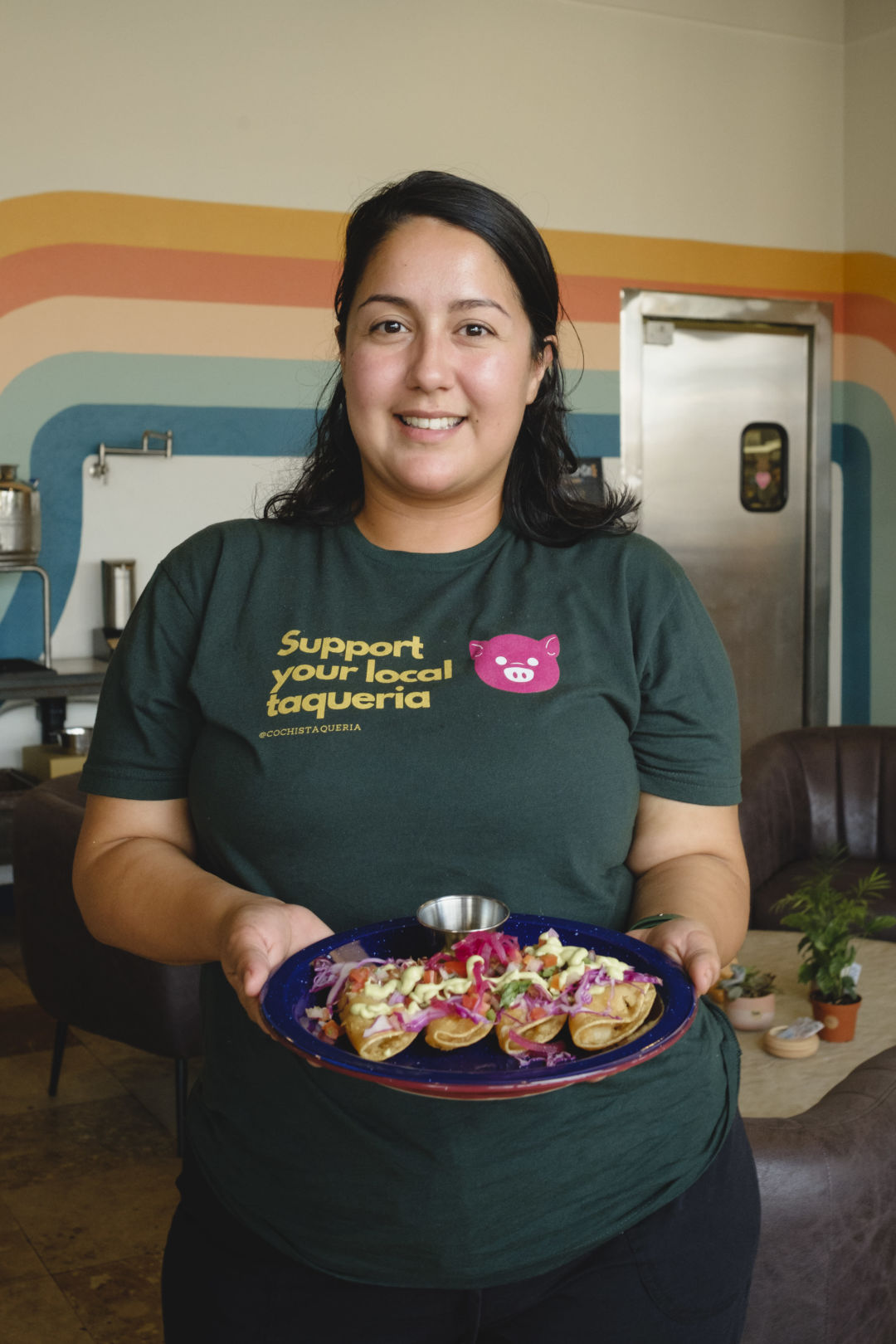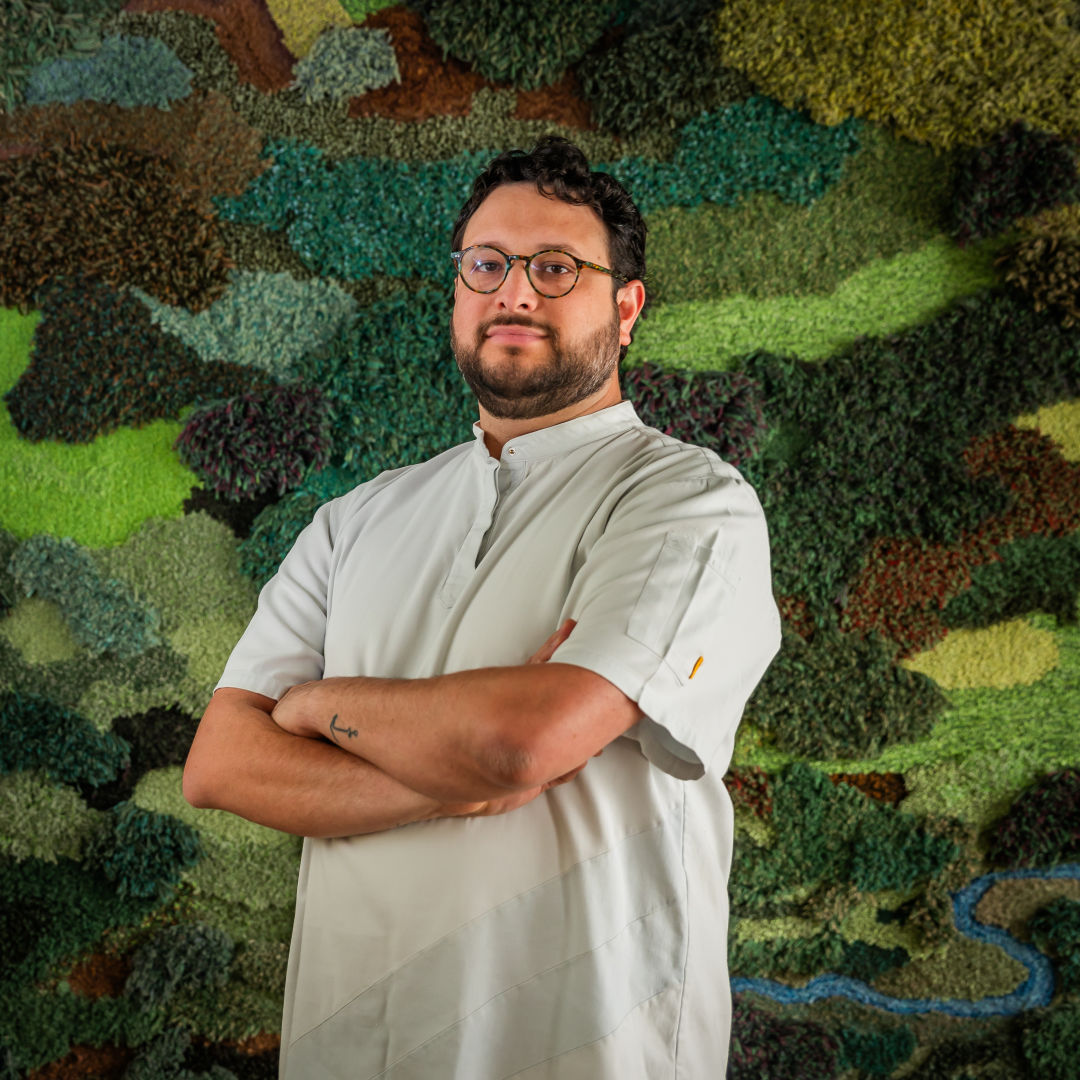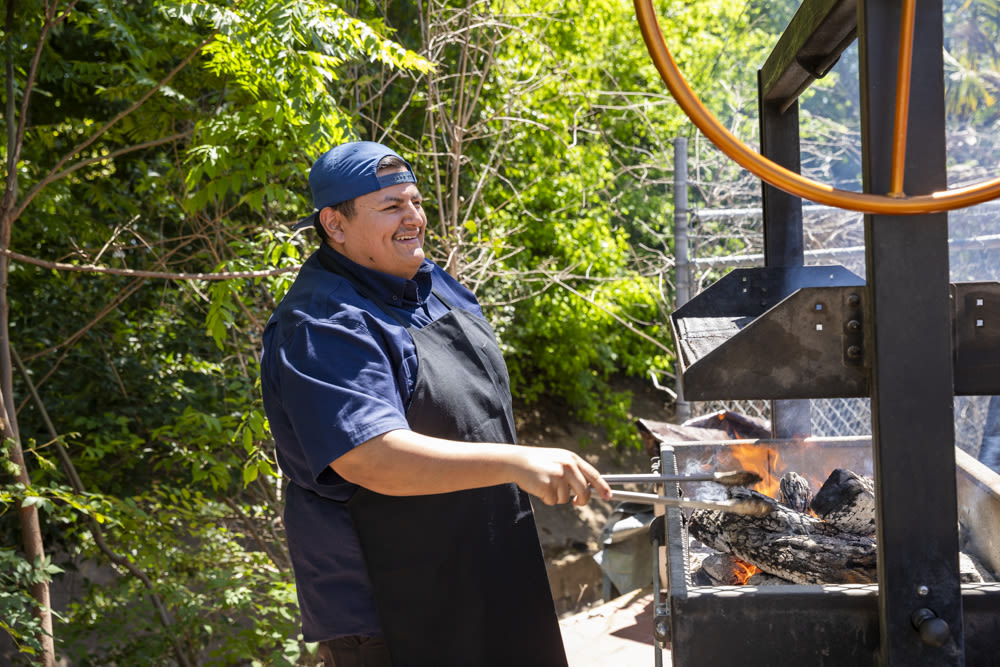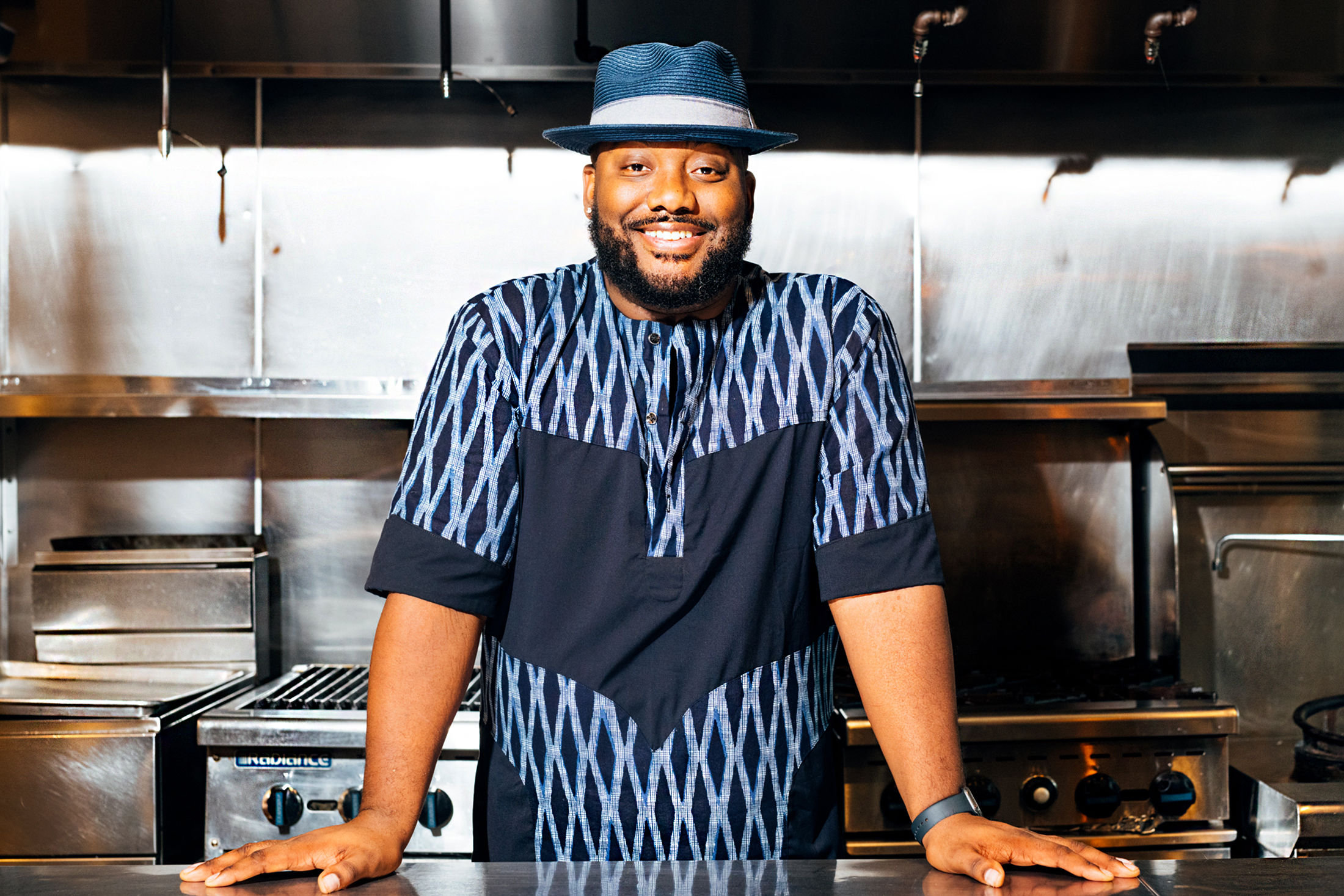With Immigration Fear on the Rise, These Chefs Are Using Their Voice

Image: Todd Urban
For Victoria Elizondo, something as simple as a driver’s license was once unachievable. At the age of 11, she and her mom migrated to the US from Monterrey, Mexico, and for years, she didn’t have a solid pathway to gaining a legal status. Then in 2012, the Department of Homeland Security began accepting applications for Deferred Action for Childhood Arrivals (DACA), and everything changed for her.
“Holding my social security card and my driver’s license in my hand, felt like ‘oh, wow, this is pretty cool,” says Elizondo, who’s now the owner of Cochinita & Co., a popular Mexican restaurant in Houston’s East End. “It did open a lot of opportunities for me as well.”
With President Donald Trump’s administration, fear is on the rise again. The US Immigration and Customs Enforcement has deported over 100,000 undocumented immigrants since he took office earlier this year, and his administration’s decision to send deportees to a prison in El Salvador has made headlines.
Immigrants account for 22 percent of all workers in America’s food services industry, with an even higher concentration in Texas. Trump’s push for mass deportation has been a big cause for concern among restaurant workers.
“[Immigrants] are the backbone of this industry,” Elizondo says. “I know people say, ‘Well, everybody’s replaceable.’ Like, yeah, you could potentially replace cooks with other races or people that are, you know, US citizens or are allowed to work in the country. But that doesn’t mean they’re going to do the same type of work—that doesn’t mean that they’re going to be as passionate as we are.”

Image: Courtesy Fredis Benitez
While their status has historically been more secure than fully undocumented people, DACA recipients are now being threatened, too. Elizondo’s saving grace could be ripped from her at any moment. The same goes for Adrian Torres, Maximo’s executive chef. Just two days after turning 15, the required age for DACA, Torres and his mom gathered the documents needed to start the application process. They went to FIEL, an immigrant-led organization that helps individuals gain access to higher education and promotes social justice.
Now an official “dreamer,” Torres is thankful for the doors DACA has opened for him. The program allowed him to attend culinary school at San Jacinto Community College, which eventually led him to become Maximo’s executive chef at the age of 26. But he’s still scared of what could come.
“The scary part is there’s 800,000 DACA recipients that the government has all of their information,” Torres says. “So, if they ever want to just pull that trigger and just completely abolish DACA, they know exactly where to find 800,000 ex-DACA recipients who are now illegal immigrants.”

Image: Courtesy of Carla Gomez
For Felipe Riccio, chef-partner of Goodnight Hospitality, this topic also hits close to home. Not many people know his story, he says, but he, too, was a DACA recipient before becoming a citizen. When he was around 12 years old, his family immigrated to the US from Veracruz under his dad’s business visa. At the time, Mexico was becoming unsafe, and his family knew that moving was a great opportunity. Riccio notes they had an easier time because his dad is Italian.
Still, a few years later when it came time to get his temporary driver’s license, he ran into some issues, which caused his whole family to lose their immigration status. To his understanding, it was a complication of a broken system and mistakes from lawyers. They were asked to self-remove.
“Basically, the judge was like, Oh, you know, you’ve been here long enough, like the business is doing OK, you know, you have someone else that can run it, and you and your family can move back,” Riccio says. “That was just not really like, feasible. The plan was to make a permanent move. And so, we were in this limbo and this sort of shows a lot about how broken the immigration system can be. We couldn’t move back… We had sold our home [in Mexico], we had our home here.”
Riccio’s family kept on fighting to rectify their situation with deferrals, but this still proved to be a challenge for his future. His dream had been to attend the Culinary Institute of America in New York, but with his legal status up in the air, that was no longer feasible. He decided to scope out local opportunities and found himself at Houston Community College. As a Texas resident, he was able to receive scholarships and grants. Then in 2012, DACA was introduced, and he once again found an answer to his in-limbo immigration status.
Now, in the first year of a second, emboldened Trump presidency, these chefs have relied on their slightly more secure immigration status to do what they can to be a voice for the voiceless.
“I still feel very, very fortunate that I was able to find the path to becoming a US citizen,” Riccio says. “And I’m proud of that. As long as things remain the way that they should, I do have the ability to speak up. I do have the ability to be a voice for someone that might not have the ability to.”

Image: Courtesy of Zachary Horst
As soon as talks of ICE and potential deportations began to ramp up with the current administration, Elizondo took immediate action and held a Know Your Rights event at Cochinita & Co. She also often helps concerned customers who come to her, putting them in touch with immigration lawyers and other helpful resources like FIEL.
Houston immigration lawyer Armand Jawanmardi says in the face of uncertainty and fear, there isn’t much companies can do except keep their workers informed with presentations like the one held at Cochinita & Co.
“Make your workers feel safe,” Jawanmardi advises. “Understanding that we’re not going to allow, you know, law enforcement to come in here and illegally start detaining people, that it’s going to be a safe space for that.”
He notes that employers can remind individuals about renewals for DACA (which happen every two years) and for employment authorization cards, a document that helps prove a worker is legally authorized to work in the US.
Even then, there’s only so much that can be done. The process for renewal takes about six months, but during Torres’s last go around with it, he ended up without a proper DACA permit for about a year. He wasn’t sure why, but his guess is that the immigration office misplaced his paperwork.
“It was very unsettling, because you know, you’re finding yourself again in the situation where it’s like ‘what am I going to do if I get pulled over or if I run into a situation where I have no way to prove because the permit in my hand is expired?’” Torres says.
DACA also doesn’t guarantee a clear path to citizenship. Riccio says he was lucky because he fell in love and got married, which eventually helped him gain his citizenship. But he says many people turn to marriages just to get out of their DACA status and not have to sit in limbo any longer. Elizondo says she’s had many friends offer this, too, but she refuses.
“You hear people, be like, Oh well, they could have gotten citizenship, they could have fixed their situation, and it’s just not the case,” Riccio says. “There’s no path to citizenship. There’s no path to legal residency just alone with DACA.”
The program comes with other hardships as well. Elizondo hasn’t seen a large percentage of her family in over 20 years. When traveling internationally, DACA recipients put themselves at risk of getting stuck outside of the US, even with approval prior to leaving.
Elizondo knows she can’t harp on what she can’t change and should instead focus on everything that she’s had the privilege of building here in America. But the challenges, alongside some hateful comments she’s heard, still sting.
“I feel like people forget that we’re just humans—it shouldn’t be that complicated,” Elizondo says.
Torres, Elizondo, and Riccio encourage those in the industry who might be undocumented to keep their heads low, but to also not let the fear stop them from going about their daily life. Jawanmardi notes that something as small as a driving while intoxicated charge could get a person’s DACA revoked, so staying out of trouble is key. He also wants to remind business owners that they can deny entry to ICE if there is no warrant, and the same goes for your personal household.
Immigration policies on the federal and even state level are unlikely to change any time soon. Riccio says Houstonians can help locally by staying informed, gaining an understanding of other people’s situations, and supporting the city’s restaurant scene.
“People that come to this country, they’re here to better themselves, better families, and a lot of them are creating opportunities for other people as well,” Riccio says. “No issue is black and white, but I think there’s a lot of ignorance and a lot of misunderstanding in this situation.”




